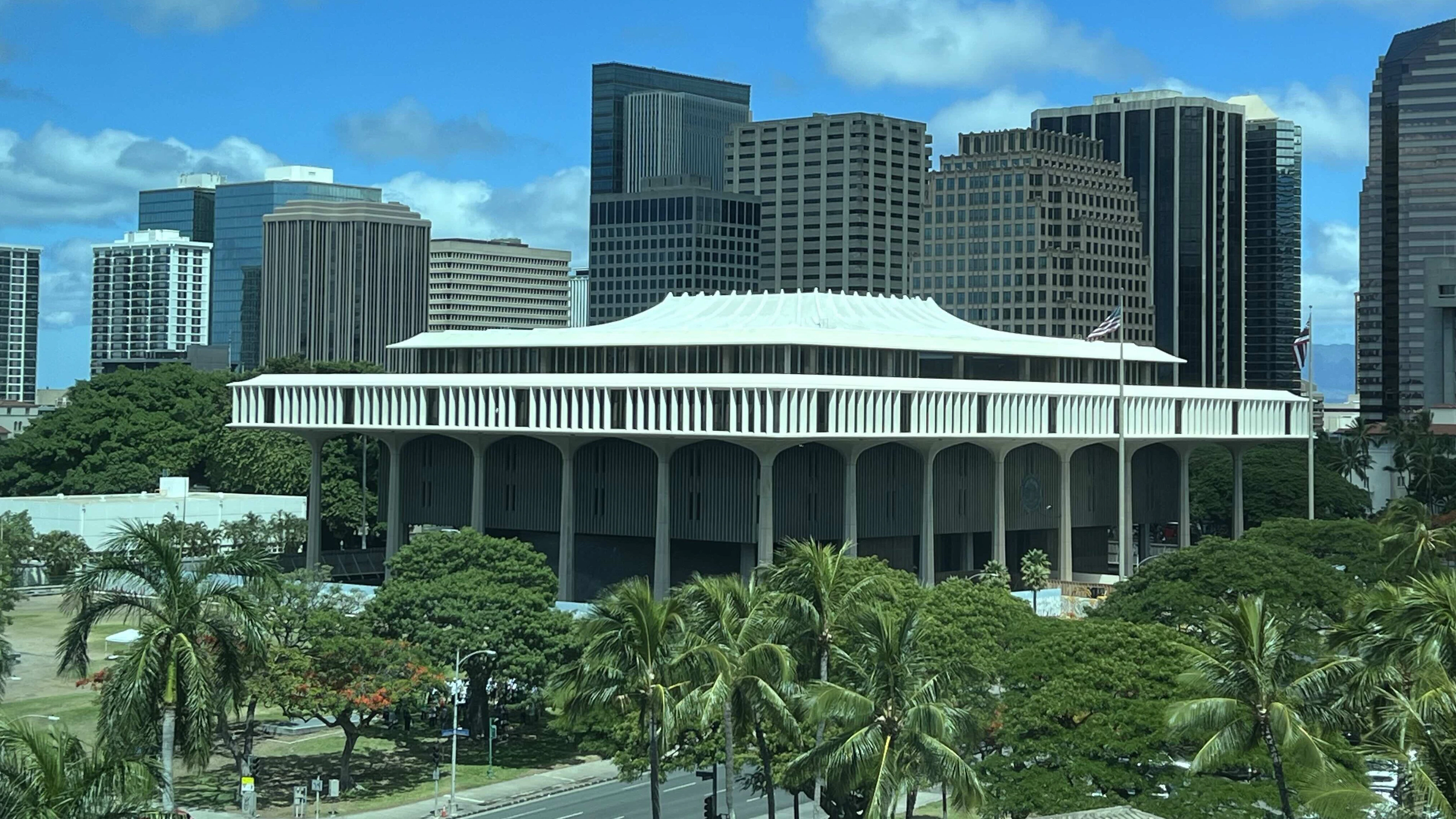Gov. Josh Green overstepped his authority when he declared the state’s housing shortage an emergency in 2023, the Hawai‘i Supreme Court ruled Thursday.
Since July 17, 2023, the state has been under a series of proclamations declaring the lack of affordable housing a state emergency and suspending various laws in order to expedite housing construction. Each proclamation expired after 60 days and was immediately replaced by another; the current proclamation, the fifteenth issued, expires on Sept. 26.
These proclamations have faced legal challenges since their issuance, but the Supreme Court ruled Thursday in favor of Native Hawaiian individuals who had opposed the first proclamation back in 2023.
The plaintiffs in that case argued that the proclamation was invalid for two reasons: first, that a lack of affordable housing is simply not an emergency, and therefore not a valid reason to declare a state of emergency. And second, that state law does not allow the governor to amend or modify state or county laws, as Green did via the early proclamations.
The case has gone back and forth between the Second Circuit Court on Maui and the Intermediate Court of Appeals for years. The ICA eventually ruled that the plaintiffs lacked sufficient standing to sue the state over the proclamations, leading to one more appeal to the Supreme Court.
This week, the high court found that, not only did the plaintiffs have standing, but also that the first five proclamations on housing were invalid.
“The proclamations were only good for 60 days, so they’re not in effect anymore,” Lance Collins, attorney for the plaintiffs, told Aloha State Daily Friday. “But the benefit of the verdict is that it makes clear what the governor’s limitations are in the future.”
Associate Justice Todd Eddins wrote in the unanimous opinion of the Supreme Court that the sixth through fifteenth proclamations — which had been issued well after the lawsuit had first been filed — were different enough from the first five to not run afoul of the same issues. In particular, those 10 proclamations are more tightly limited to only affordable housing development projects, instead of the broader range of projects allowed for by the first five.
“The state’s position has been that the governor can take any action, declare anything an emergency and nobody can do anything about it,” Collins said.
Collins said there have been previous legal challenges about other gubernatorial proclamations in the past. For example, in 2021, then-governor David Ige issued a proclamation regarding the demonstrations at the Mauna Kea Access Road over the planned construction of the Thirty Meter Telescope.
Attorneys challenged that proclamation and Ige rescinded it within a month.
Collins also mentioned a proclamation by Gov. Neil Abercrombie in 2011 regarding an incoming tsunami that ended up doing minimal damage, but was used to justify seawall construction on Maui, he said. Attorneys, including Collins, also challenged that proclamation.
With the Supreme Court verdict on the books, Collins said the plaintiffs are “feeling vindicated” about their concerns over Green’s use of power.
“They were stressed about having this unrestrained housing development,” Collins said. “My clients are from different communities, but they all agree we obviously have a big shortage of good, affordable housing. But we can’t disregard our most cherished values to solve that systemic problem.”
For the latest news of Hawai‘i, sign up here for our free Daily Edition newsletter.




